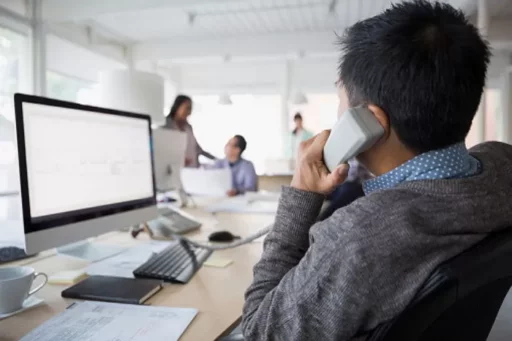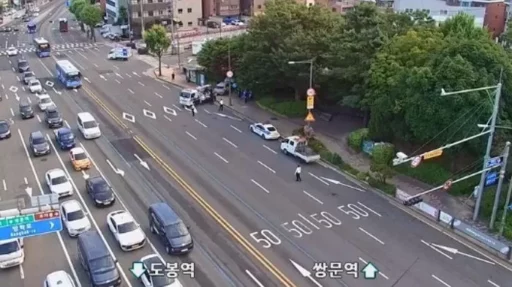Special Training for MZ Generation Public Officials to Overcome 'Call Phobia'
"Okay, Excuse me, Could you please, I'm sorry, But could you?"
On the 1st, the loud voice of Im Yu-mi (42), a team leader in the Civil Complaint Planning Team, echoed in the Seoul City Hall conference room. About 100 city hall employees laughed and followed this unique chant.
These five phrases gather the first letters of "괜찮으시다면" (If you are okay), "실례합니다만" (Excuse me), "번거로우시겠지만" (Although it may be inconvenient), "죄송합니다만" (I'm sorry), and "바쁘시겠지만" (Although you may be busy), and serve as a 'cushioning phrase' to make the beginning of a conversation smoother during phone calls.

"When you start a conversation with these phrases, it makes communication much smoother. It provides a sort of 'cushion'," Im explained, a veteran in phone responses with experience from a private airline's customer satisfaction team, as the public officials took notes with serious expressions.
Customized Training for MZ Generation Public Officials Suffering from Phone Anxiety
The training session held that day, titled 'Phone Response Dialogue Techniques – Emotional Persuasion and Language Design Focused Training,' was the first special training organized by the Seoul city government focused on phone responses.
A Seoul city official explained, "We specifically planned this for MZ generation employees who find phone calls with citizens challenging."
Of the 100 participants, approximately 80% were 'MZ Generation public officials' in their 20s and 30s, and there was a strong demand for such training among them.

Recently, 'call phobia' has become a common phenomenon among 20-30 year olds, the digital native generation. According to a survey by the employment portal Albajungook last year, 39.3% of 1,186 men and women in their 20s and 30s reported feeling tense during phone calls.
This trend, where young people who are accustomed to messengers like KakaoTalk find direct voice conversations uncomfortable, is not an exception in the public sector.
A public official in their 20s shared, "When a citizen pours out their request on the phone, I suddenly get tongue-tied," lamenting that "the most daunting part of the job is calls from citizens."
Practical Phone Response Technique Training
The session focused on practical techniques for maintaining smooth conversations with citizens.
Im advised, "First express empathy for the citizen's story before starting your explanation. This is called the 'Yes, but' approach. It's effective to empathize, explain the situation, and then suggest alternatives using the 'Yes, but' method."

A 'mock phone practice' based on real situations was also conducted, with one participant showing determination by saying, "I will memorize it like a formula and use it."
Im also offered practical tips like, "It's better to answer the phone before it rings three times, and if you answer late, say 'Thank you for waiting' first to prompt a gentle response from the other party."
After the training, public officials expressed positive feedback, stating, "I used to have my heart race at the sound of the phone ringing, but now I feel confident" and "It's my first time learning phone dialogue techniques, and it's very helpful."
A Seoul city official mentioned they plan to establish phone response special lectures during training for new employees, fueled by this positive response.
Image source: material photos to aid understanding of the article / gettyimagesbank


